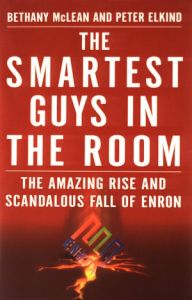
The Smartest Guys in the Room
The Amazing Rise and Scandalous Fall of Enron
Recommendation
Enron seems like old news, but its history is still deeply informative. Its spectacular, 2001 collapse was the first in a series of notorious corporate scandals. Most of the stories Bethany McLean and Peter Elkind tell already had appeared in the news media and the rush-to-publish books that appeared shortly after the scandal. Still, McLean and Elkind offer what may be the most comprehensive, detailed account, written like an anecdote-rich, lively business novel. Their reporting is intriguing and engrossing, though the book could use a timeline. If you’re going to read just one book on the Enron scandal, this is the one that pins it down as much as possible. As the authors note, “Everything was perception; nothing was real.”
Summary
About the Authors
Bethany McLean also wrote All The Devils Are Here and Shaky Ground. Peter Elkind also wrote Client 9, Rough Justice and The Death Shift.








Comment on this summary